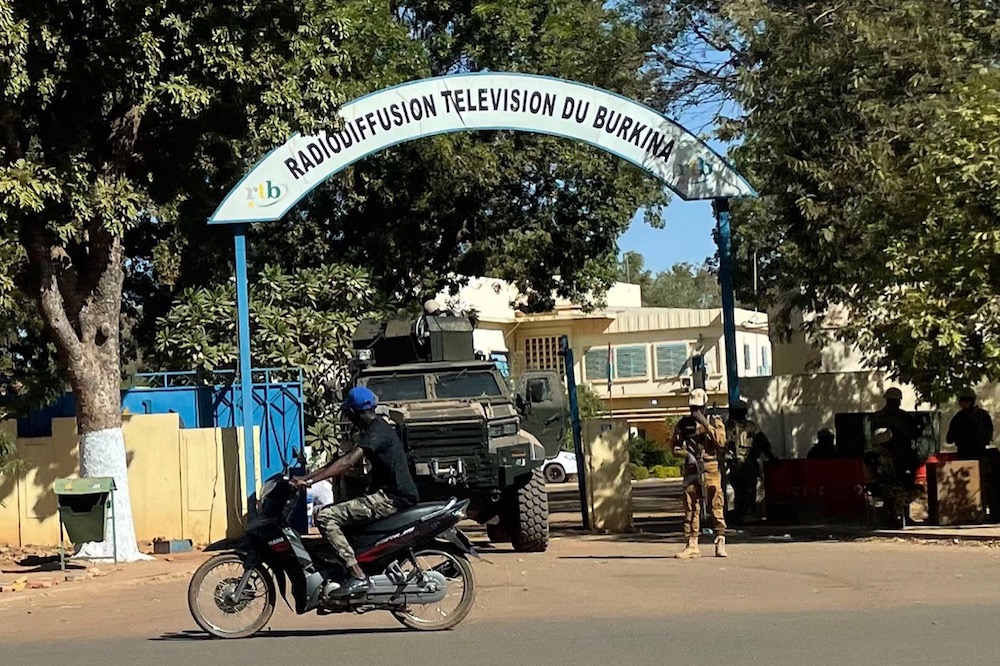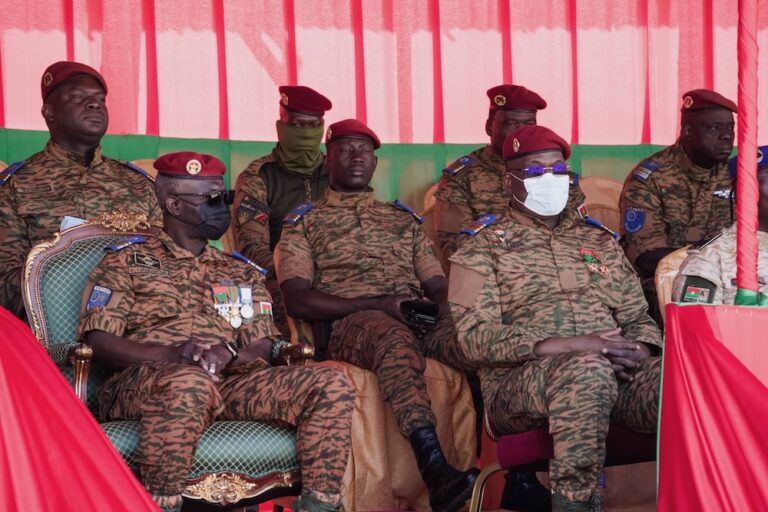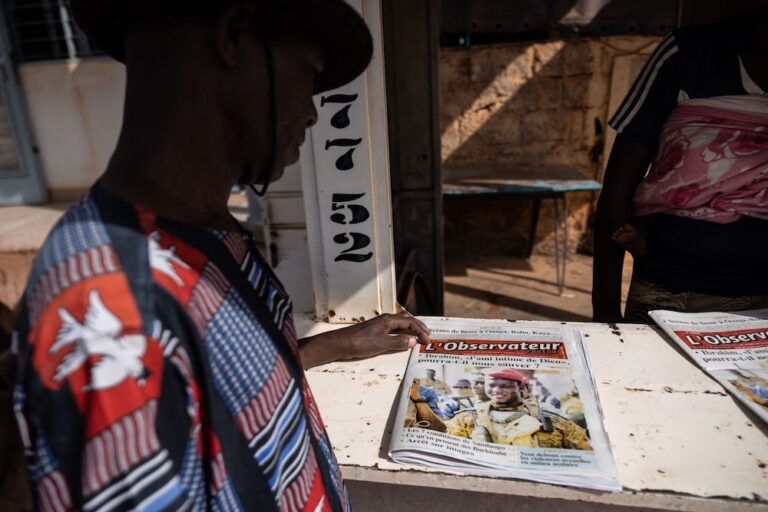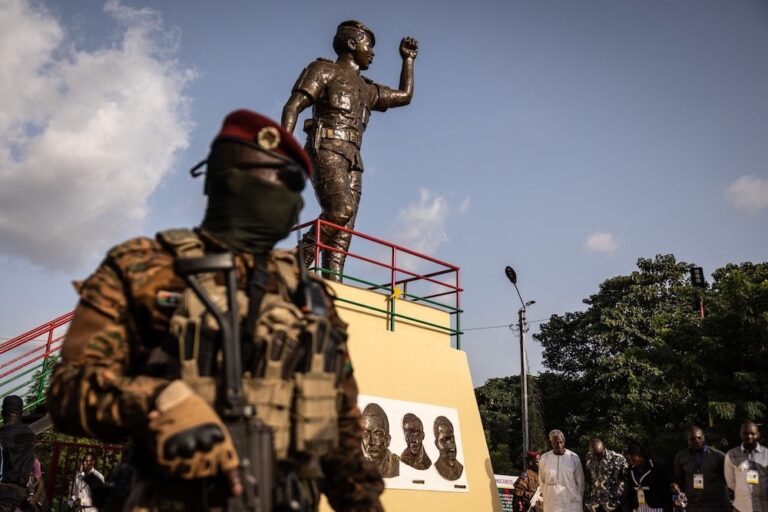Since May, four journalists in Burkina Faso have been the target of violent threats.
This statement was originally published on rsf.org on 4 July 2022.
Four journalists have been the targets of violent threats in Burkina Faso since May. Reporters Without Borders (RSF) is appalled by the frequency of these threats and calls on the authorities to do everything necessary to bring those responsible to justice and guarantee journalists’ safety.
“We must set fire to his home, burn it to the ground, collect all the debris and leave the lot empty.” It was with these words that Newton Ahmed Barry – a former editor of the privately-owned newspaper L’Événement and now a news commentator in the Burkinabé media – was threatened in an audio recording dated 10 June that was posted anonymously on social media. The message also described him as a “terrorist” who “does not deserve to live.”
Although the recording mentioned no specific reason for the death threat, it could have been prompted by a 19 May broadcast in which Barry voiced scepticism about an agreement between the government in neighbouring Mali and Wagner, a Russian military company that supplies mercenaries.
“These very serious remarks about a journalist must not go unpunished,” said Sadibou Marong, the director of RSF’s West Africa desk. “In a context in which intimidation of media professionals is becoming more and more frequent, it is urgent that the authorities react by carrying out an investigation with the aim of bringing those responsible to trial. We call on the authorities to do everything possible to put an end to these threats and to guarantee journalists’ safety.”
Local media associations issued a joint statement describing the death threat against Barry as “serious and alarming, given the national context of violence,” and calling on the authorities to conduct an immediate investigation.
Barry’s lawyer, Batibié Benao, told RSF that the prosecutor at the main court in the capital, Ouagadougou, had ordered an investigation. “There is no need to add a complaint,” he said. “We are awaiting the outcome.”
The targets of recent threats against journalists in Burkina Faso include Besséri Ouattara, a sports reporter for the L’Express du Faso newspaper in the southwestern city of Banfora. He was threatened on 24 May by Brahima Traoré, a local sports official, who gave him three days to leave the city for reporting that the regional football team’s players were refusing to play in the national football cup semi-final in a protest over unpaid salaries and bonuses.
Five days before that, on 19 May, BF1 TV cameraman Luc Pagbelguem was filming Prime Minister Albert Ouédraogo at a public event in Ouagadougou, when a member of the prime minister’s security suddenly grabbed him and violently forced him to descend from a platform without offering any explanation for his use of force.
Fanny Noaro-Kabré, the French TV network TV5 Monde‘s correspondent in Burkina Faso, was expelled from a public event in Ouagadougou on 14 May by an activist who accused the French media of “constantly demonising and caricaturing us.”
Since a military coup in January 2022, Burkina Faso has seen an increase in Jihadi violence and political instability that pose a serious threat to journalism. It is ranked 41st out of 180 countries in RSF’s 2022 World Press Freedom Index.



